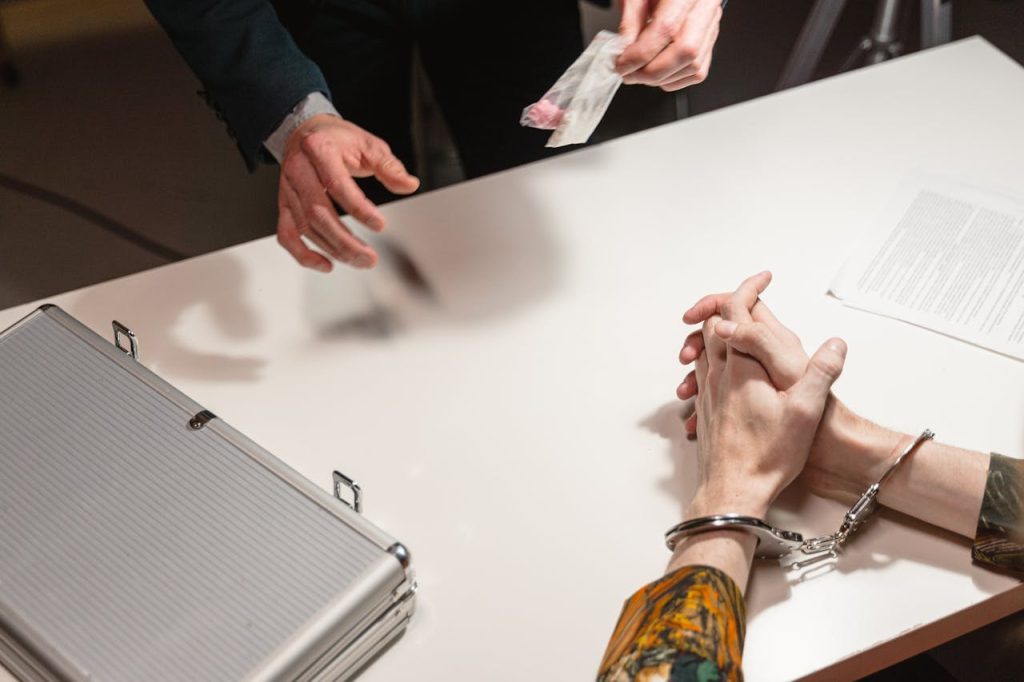
When you think about your money, you probably imagine it’s safe in your bank account or investments. But what if you woke up one day and found your assets frozen—no warning, no chance to move your funds? Asset freezing isn’t just something that happens to criminals or big corporations. It can happen to regular people, sometimes for reasons that seem minor or even unfair. Understanding how asset freezing works, and the legal loopholes that make it possible, is important for anyone who wants to protect their financial future. These loopholes can catch you off guard, and knowing about them is the first step to staying safe. Here’s what you need to know about asset freezing and the ways authorities can use the law to lock down your money.
1. Civil Asset Forfeiture
Civil asset forfeiture is one of the most controversial ways authorities can freeze or take your property. Law enforcement doesn’t need to charge you with a crime. If they suspect your assets are linked to illegal activity, they can seize them. You might have to fight in court to get your money or property back, even if you’re never convicted. This process is used across the United States, and it’s been criticized for targeting innocent people. If you travel with large amounts of cash or own valuable items, you could be at risk. To protect yourself, keep records of where your money comes from and avoid carrying large sums without a clear reason.
2. IRS Administrative Freezes
The IRS has the power to freeze your bank accounts if it believes you owe back taxes or have made suspicious transactions. They don’t need a court order to do this. If the IRS thinks you’re hiding money or not paying what you owe, it can issue an administrative freeze. This can happen quickly, and you might not know until you try to use your account. The best way to avoid this is to file your taxes on time and respond to any IRS notices right away. If you’re self-employed or have complex finances, consider working with a tax professional. Asset freezing by the IRS can be a nightmare, but staying organized and proactive helps.
3. Pretrial Restraining Orders
If you’re under investigation for certain crimes, a court can issue a pretrial restraining order to freeze your assets. This is often used in cases involving fraud, embezzlement, or drug offenses. The idea is to prevent you from moving or hiding money before a trial. But sometimes, these orders are issued based on limited evidence. You might not get a chance to argue your side before your assets are locked down. If you’re ever contacted by law enforcement about an investigation, get legal advice immediately. Acting fast can make a big difference if asset freezing is on the table.
4. International Sanctions and Blacklists
Governments and international bodies like the United Nations can freeze assets if you’re linked to sanctioned countries, organizations, or individuals. This isn’t just for big-time criminals or terrorists. Sometimes, people get caught up in sanctions because of business ties, family connections, or even mistaken identity. If you do business internationally, check the U.S. Treasury’s sanctions lists regularly. Make sure you know who you’re dealing with. Asset freezing under sanctions can happen fast, and getting your money back is often complicated.
5. Divorce and Family Court Orders
Asset freezing isn’t just a government issue. In divorce or child support cases, a judge can freeze your accounts to make sure money is available for settlements or payments. This can happen if your spouse claims you’re hiding assets or not paying what you owe. Sometimes, the freeze is put in place before you even know there’s a problem. If you’re going through a divorce or custody battle, be upfront about your finances and follow court orders. Hiding money or ignoring legal paperwork can make things worse and lead to asset freezing.
6. Bank Suspicious Activity Reports
Banks are required to report suspicious activity to authorities. If your transactions look unusual—like large cash deposits, frequent transfers, or international wires—your bank might freeze your account while they investigate. This is meant to stop money laundering and fraud, but sometimes innocent people get caught up in it. If you need to make a big transaction, tell your bank ahead of time. Keep records of where your money comes from and where it’s going. If your account is frozen, contact your bank right away and ask for details.
7. Emergency Powers and National Security Laws
In times of crisis, governments can use emergency powers to freeze assets. This might happen during a national emergency, terrorist threat, or public health crisis. The rules are broad, and authorities can act quickly. You might not have any warning. These laws are meant to protect the public, but they can also affect regular people who aren’t involved in any wrongdoing. If you live in a country with strict emergency laws, pay attention to the news and keep your finances organized. Asset freezing under emergency powers is rare, but it’s possible.
Protecting Your Money Starts with Awareness
Asset freezing can happen to anyone. The legal loopholes that allow it are real, and they don’t always require a conviction or even a warning. The best defense is to stay informed, keep good records, and respond quickly if you get a notice from authorities or your bank. If you’re ever unsure, talk to a lawyer or financial advisor who understands asset freezing laws. Your money is your future—don’t let a legal loophole take it away without a fight.
Have you or someone you know ever dealt with asset freezing? Share your story or advice in the comments below.
Read More
6 Statements Widows Hear That Can Void Joint Checking Accounts
Are Your Grandkids’ Names Putting Their Future Credit at Risk?
The post 7 Legal Loopholes That Let Authorities Freeze Assets Without Warning appeared first on The Free Financial Advisor.







